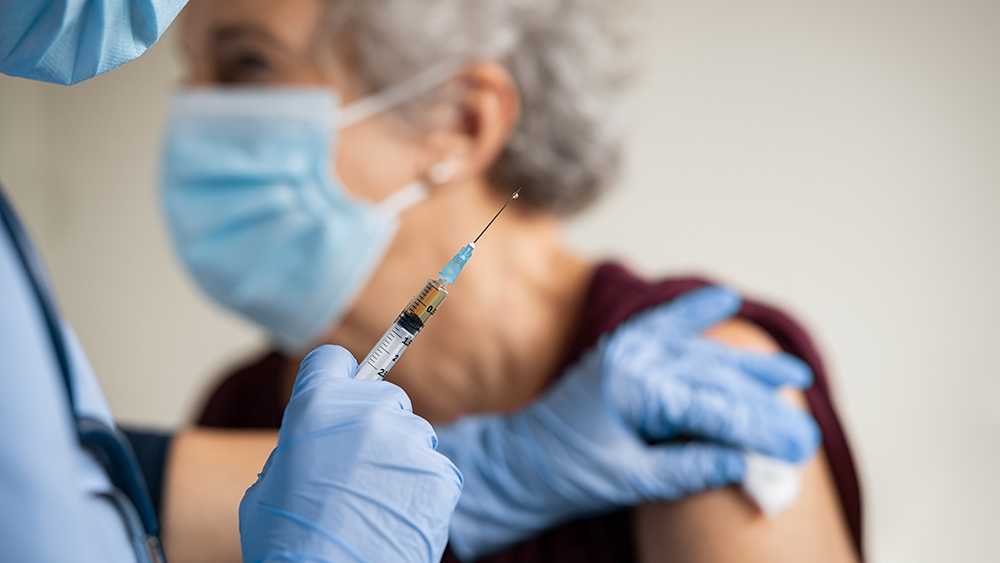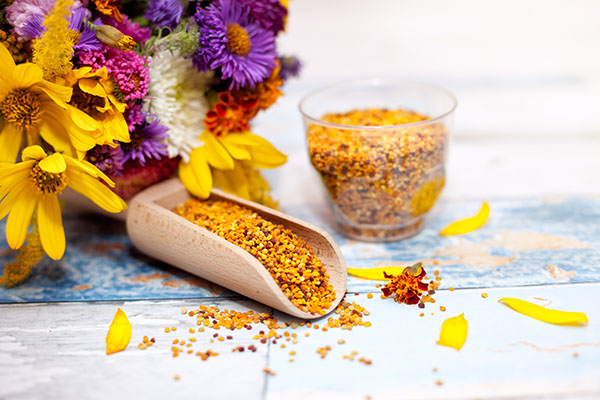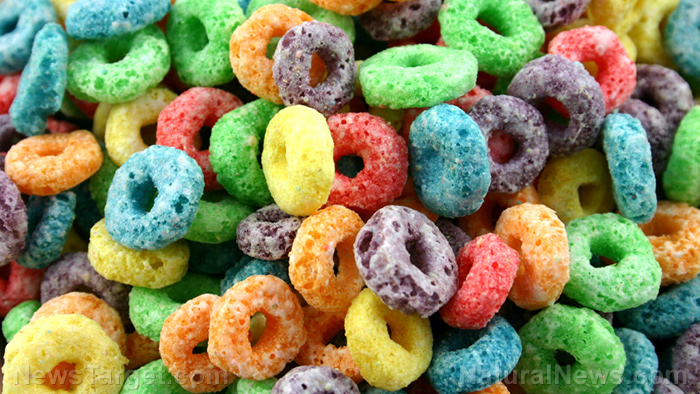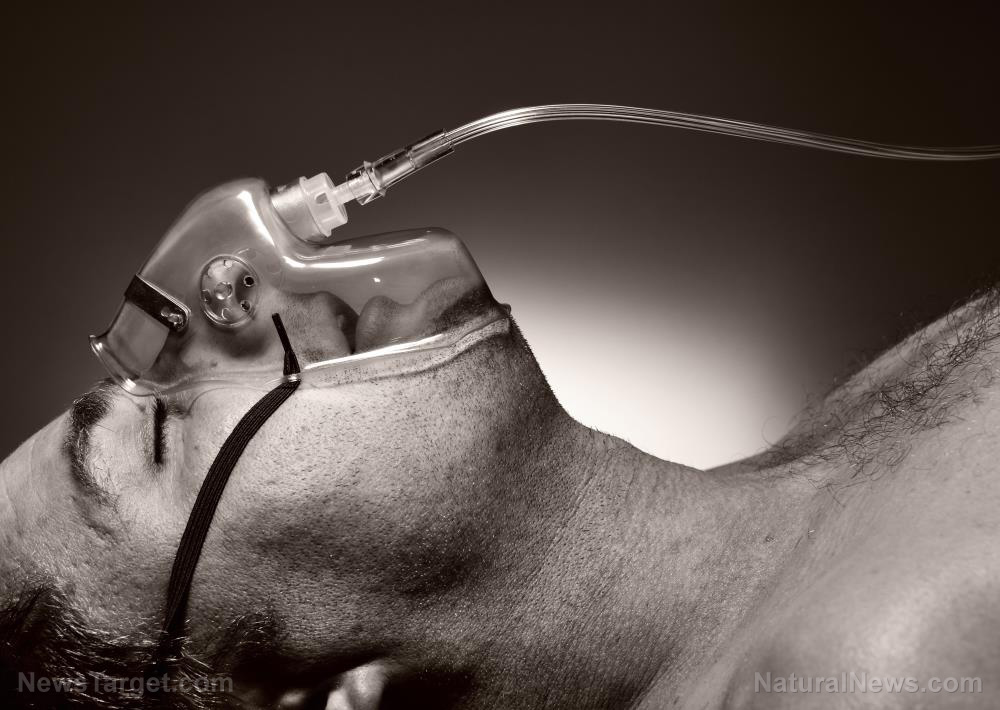Prepper medicine: How to use red raspberry, a medicinal plant full of vitamins
09/20/2022 / By Zoey Sky

Red raspberries are tasty and nutritious. You can either grow the plant in your backyard or forage for it when SHTF.
You can also use nutrient-rich red raspberry leaves to make natural remedies for digestive issues and body pain. (h/t to PrepsShoolDaily.Blogspot.com)
Raspberries are the edible fruit of a plant species that belongs to the rose family. You can find black, purple and golden raspberries, but the red raspberry (Rubus idaeus) is the most common.
While red raspberries are native to Europe and northern Asia, the fruit is cultivated in temperate areas around the globe. Most raspberries in America are grown in California, Oregon and Washington.
Red raspberries are sweet and tart. They have a short shelf life and are only harvested during the summer and fall months. It’s best to eat red raspberries shortly after purchasing or harvesting them.
Red raspberry’s nutritional profile
Raspberries are low in calories yet full of vitamins and minerals.
A one-cup serving (123 grams) of red raspberries contains 64 calories, 14.7 grams of carbs, eight grams of fiber, 1.5 grams of protein and 0.8 grams of fat.
The same serving size also contains the following nutrients:
- Vitamin C – 54 percent of the Reference Daily Intake (RDI)
- Manganese – 41 percent of the RDI
- Vitamin K –12 percent of the RDI
- Magnesium – 7 percent of the RDI
- Copper – 6 percent of the RDI
- B vitamins – 4-6 percent of the RDI
- Iron – 5 percent of the RDI
- Potassium – 5 percent of the RDI
- Vitamin E – 5 percent of the RDI
- Phosphorus – 4 percent of the RDI
Red raspberries provide more than 50 percent of the RDI for vitamin C, a water-soluble nutrient that’s important for immune function and iron absorption. Red raspberries also contain small amounts of Vitamin A and B6, calcium, riboflavin, thiamine and zinc.
Red raspberry leaves are also chock-full of nutrients. The leaves contain vitamins B and C, along with many minerals like iron, phosphorus, potassium, magnesium and zinc.
But the most notable contribution of red raspberry leaves might be their antioxidant properties.
The leaves contain beneficial polyphenols like tannins and flavonoids, which act as antioxidants in your body. These compounds can help protect cells from damage.
Red raspberry leaves also contain small amounts of ellagic acids. According to studies, these acids have been shown to neutralize carcinogens. Ellagic acids also contribute to the self-destruction of cancer cells.
Additionally, red raspberry leaves contain vitamins A, B1, B2, B3, C and E, as well as iron, an essential mineral. One ounce of raspberry leaves yields 18 percent of the Recommended Dietary Allowance (RDA) for iron, magnesium, potassium, zinc and calcium.
The next time you’re foraging red raspberries in the wild or harvesting them right in your home garden, don’t forget the nutritious leaves.
You can use red raspberry leaves to make the following home remedies.
Red raspberry infusion/tea
Add one to two teaspoons of dried leaves per cup of boiling water to make a red raspberry leaf infusion. Let the tea steep for at least 15 minutes.
Drink three to four cups of the infusion per day to treat the following conditions:
- Arthritis
- Diarrhea
- Gout
- Incontinence
- Leg cramps
- Premenstrual syndrome (PMS) symptoms
A red raspberry infusion can help relieve painful menstrual cramps and regulate menstrual flow, especially when consumed regularly.
Historically, raspberry leaf tea was used to ease labor pains, improve the quality of contractions and help mothers build a good supply of breast milk. Some sources also suggest that it can be used for treating morning sickness and nausea.
But if you are in the first and second trimester of pregnancy, use red raspberry infusion with caution and only under the direction of a licensed medical practitioner. (Related: Prepper medicine: How to use chokecherry, a versatile medicinal plant.)
Red raspberry decoction
To make a red raspberry decoction, steep five tablespoons of raspberry leaves in one quart of water for 15 minutes.
Use the decoction as a rinse or gargle to treat the following:
- Canker sores
- Cold sores
- Gingivitis
- Sore throat
- Tonsillitis
A red raspberry decoction can also be used to treat skin conditions like acne, dermatitis, eczema and itching of the skin.
Use a cooled and filtered decoction to treat conjunctivitis of the eyes.
Red raspberry poultice
You can also use a red raspberry decoction to treat minor wounds, varicose veins and minor burns like sunburn.
Dip a clean cloth into the decoction above and apply to the affected area.
Considerations before using red raspberry remedies
While red raspberry leaf is generally safe to use, it is not for internal use in people with conditions like:
- Endometriosis
- Gastritis or peptic ulcer
- Ovarian cancer
- Uterine cancer
- Uterine fibroids
According to research, the most optimal time to start drinking red raspberry leaf tea is at 32 weeks gestation. In one study, researchers reported that taking 2.4 mg per day of red raspberry leaf in tablet form appears to be safe.
Data showed that it’s safe to consume one to three cups of red raspberry tea per day. If you wish to consume the tea earlier in pregnancy, it is recommended to limit your intake to one cup per day.
If you experience Braxton Hicks contractions during pregnancy or have spotting in the second or third trimester, it’s best to stop drinking red raspberry tea.
Additionally, red raspberry tea may have laxative properties – meaning it could cause the loosening of stool in some people. The tea may also have a mild diuretic effect and can increase urination.
Visit SurvivalMedicine.news to learn about other medicinal plants that you can grow in your home garden.
Watch the video below to know more about the health benefits of red raspberry leaves.
This video is from the Holistic Herbalist channel on Brighteon.com.
More related stories:
How to identify and grow ironweed, a medicinal plant.
How to use and plant lemongrass, a powerful medicinal plant.
Survival gardening: Using wild violets for food and medicine.
Sources include:
Submit a correction >>
Tagged Under:
alternative medicine, emergency medicine, fruits, green living, herbal medicine, Herbs, homesteading, natural cures, natural medicine, natural remedies, off grid, preparedness, prepper, prepping, Raspberries, red raspberries, Rubus idaeus, SHTF, survival, survival medicine, survivalist
This article may contain statements that reflect the opinion of the author






















